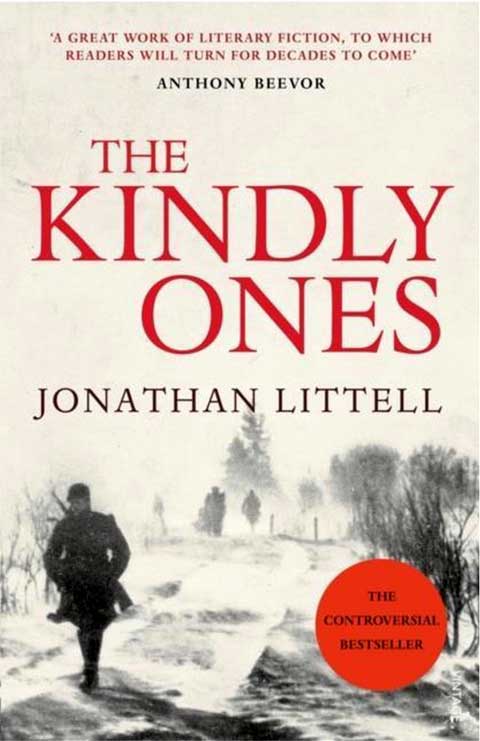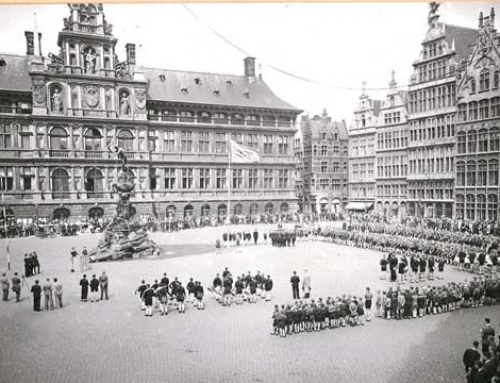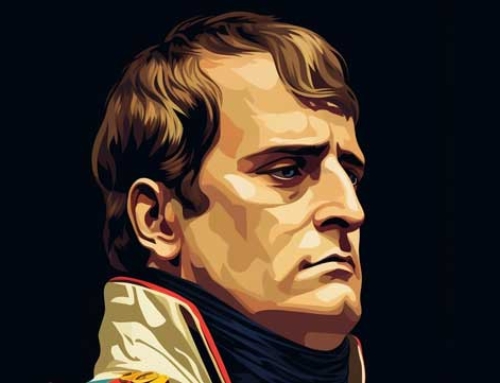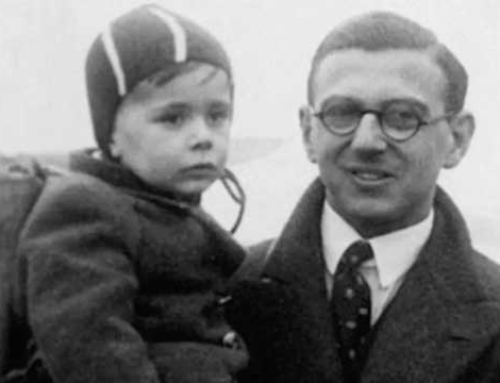Littell’s narrator in The Kindly Ones, an SS officer with the ironically bucolic name of Maximilien Aue (if he were English-speaking, he would call himself Pasture), appears artfully when the Einsatzgruppen slaughter Jews at the edge of mass graves in Poland and the Ukraine and when World War II turns against Germany during the siege of Stalingrad. He makes inspection visits to Auschwitz, Sachsenhausen and Buchenwald and is called to the Berlin bunker during Hitler’s last days. Of course, he comes face to face with big names such as Eichmann, Himmler and the person you’ve been waiting for since the beginning of history, the Führer himself.
Littell, of American origin but bilingual, wrote “Les Bienveillantes” in French and won the Grand Prix du Roman de l’Académie française and the Prix Goncourt.
“The Kindly Ones“: the title refers to the Eumenides, the benevolent aspect of the Erinyes, figures from Greek mythology who become Eumenides (“benevolent“) after a criminal has done penance and repented. The book certainly presents itself as a serious work of art, and it does not take its seriousness and heaviness lightly.
Littell gives the seven parts of The Kindly Ones a title as if it were a piece of music: Toccata, Allemandes I and II, Courante, Sarabande, Minuet (and Rondeaux), Air and Gigue. But this presumption corresponds to the claims of his narrator: like so many Nazis in novels and movies (and some real ones), Aue is a lover of classical music, although he is more of the Rameau type than the Wagnerian type. He has an opinion on the interpretation of Brahms by the amateur violinist Eichmann (“He didn’t make any mistakes, but he didn’t seem to understand that it wasn’t enough“) and on the piano playing of Hans Frank, the Reich Governor General for Poland, who “played quite well, but used the pedal too much“. Aue also knows his literature: he refers not only to Oresteia but also to Herodotus, Chekhov, Flaubert, Stendhal, Lermontov, Melville, Chesterton – and even to Edgar Rice Burroughs, whose Martian novels he recommended to Himmler as a model for post-war social reforms. Aue also evokes Kant, Hobbes and – not surprisingly – Nietzsche. Aue’s twin sister once studied with “a certain Dr. Carl Jung“, who, he notes, “has since become quite famous“.
Aue’s aesthetics and erudition seem destined to raise this much-heard question
How can a supremely civilized person also participate in infernal cruelty?
And, by extension, how is it possible that the nation of Bach and Beethoven, Goethe and Schiller has arrived at this point?
The exoticism of evil
The fictionalization of all aspects of the Holocaust is approached with suspicion. Art is always entertainment on some level, and the idea of being entertained, even skillfully, by this particular series of horrors seems intrinsically reprehensible.
Jonathan Littell’s The Kindly Ones describes the known atrocities in detail and on a large scale from the point of view of an SS man closely involved in their execution. The book is certainly skillful. It is at the same time reprehensible… on purpose: the resentment and repugnance it arouses is probably part of the underlying calculation.
Despite the title, it is not one of those works that makes one cry about the Holocaust.
The officer, Max Aue, a civil lawyer, presents himself as a cultured man; a Nazi by conviction rather than opportunism, intellectually meticulous, highly disciplined but also sensitive (the mass murders he observes and helps to organize make him sick to the point of repeated collapse, even though he constantly confirms and declares his belief in their necessity).
The story he tells begins more or less with his acceptance of a mission to the fateful Eastern campaign, to write reports on the implementation of increasingly dark directives on the “Jewish question“. As the first victories in the Caucasus come up against Russian resistance and winter bogs them down, Aue comes into conflict with his commander and is sent to Stalingrad. Here, after seeing a new level of apocalyptic horror, he is shot in the head, but miraculously survives.
He wakes up in Berlin where Himmler pins a medal to his chest. After his recovery, he decides, after some hesitation (he is now plagued by nightmares, hallucinations, diarrhea and constant vomiting), to devote his talents to smoothing out the various administrative problems that the Endlösung, the final solution, entails. He thus finds himself caught up in a bureaucratic struggle between Eichmann, who wants to exterminate as many Jews as possible, and Albert Speer, who wants to keep as many people alive as possible and use them as slaves: one of the many grotesque moral dilemmas that the book explores with dark brilliance.
The Kindly Ones plunges you into the heart of the Nazi nightmare…
One way of looking at Littell’s novel is as an attempt to use the means of fiction to provide an often missing dimension (in books about Nazism and the Holocaust). A kind of gigantic thought experience, in which the reader subjectively finds himself within the Nazi nightmare. This through the consciousness of a living, thinking, tormented volunteer participant, whose nervous system reacts more or less humanely to the hell that surrounds him. A character whose mind has a practical encyclopedic frame of reference to help us make sense of it. Perhaps even, thanks to his head injury, he possesses the mythical “third eye“, capable of penetrating the spiritual essence of things.
In this respect, the book is impressive, even magnificent. Based on factual but majestic sentences, vast tableaux vivants brimming with Dantean details. If you want to feel yourself in the midst of administrative manoeuvrings, pseudo-scientific argumentation about language and race, and the mass of social and sensory trivia related to the period that constituted the human reality from which, for example, the Babi Yar massacre, or the last death march of Auschwitz, came; if you want to relive in your own psyche the intricacies of cannibalism in Stalingrad or the emotional impact on Himmler’s criminal Gauleiters in Posen to the point of total genocide, then this is definitely a book to read.
Does The Kindly Ones contain lateral references to the present day?
What is disturbing is the persistent attempt to grasp an underlying reciprocity between the Nazis and the Jews. In one of his hallucinatory moments, Aue sees Hitler transform himself into a rabbi. Another character cites Disraeli’s Coningsby as a proto-Nazi text praising the Chosen People as “an unmixed race … the aristocracy of nature“. He notes that the Jews are “our only real competitors … our only serious rivals“. Eichmann fears that saving the strongest Jews for slavery will create “the strongest biological reservoir“, and that “in 50 years, it will all start all over again“.
Is this a lateral reference to the present? Maybe it is, maybe it isn’t. But what follows, from Aue himself when he thinks of the Warsaw Uprising, certainly is: “It is the Jews who become warriors again, who become cruel, who also become murderers. I like that very much“.
It is difficult to read this without thinking of some contemporary commentators who take pleasure in comparing modern Israel to Nazi Germany; it is also sometimes difficult to know where Littell himself stands in relation to the feelings of his protagonist. At times like these, the author’s detachment, which he cultivates with masterly elegance, seems ephemeral.
At one point, Aue quotes the critic Maurice Blanchot’s description of Moby-Dick, a work that “has the ironic quality of an enigma and only reveals itself through the questions it raises“. I suspect that this speaks volumes about Littell’s ambitions for his own monumental investigation of evil with The Kindly Ones.






